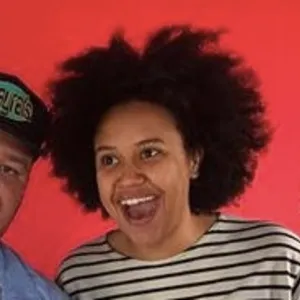I was never a fan of Hairspray the musical. I never watched it as a kid or sang the songs growing up, heck, I didn’t even know the storyline until the movie came out. But I’m glad it did. Say what you will about Hairspray, but its writers got something right.
The Broadway hit is known for its catchy tunes and progressive politics (especially surrounding body image), but there’s a sly complexity to their approach of race politics. It’s one to be expected, or at least hoped for in a music written in the 21st Century (Hairspray made its debut in 2002).
Remember that scene where Seaweed invites Tracy, Penny, and Link to the black part of town to hang out? Link asks the equivalent of “are we allowed in your black neighborhood?” and Seaweed responds with “it’s cool, cracker boy!” And then Penny—who will soon to find herself in a multiracial relationship with Seaweed—exclaims “being invited places by colored people!” which Stacey affirms with “it feels so hip!”
I know I know, it’s awkward.
It doesn’t matter what color you are, unless you’re someone who uses the word—stop doing that by the way—”colored” will send a shiver down anyone’s spine. As does “cracker boy,” naturally. And that’s a good thing. The language is in the show because the writers made sure their 1962 Baltimore setting was historically accurate. People should remember that and feel uncomfortable about it, which is something a lot of people take for granted.
The hardest things to talk about should be awkward conversations. Of course they should! In a world where race (among other things) is still used as an excuse for separation and division, especially in the US, we have to talk about it.
But what the heck are we supposed to do with all the uncomfortable exchanges that come with that? Well, sing. And that’s exactly what the following dance number accomplishes. Singing some awkward, fantastic food metaphors, that is.
“The blacker the berry, the sweeter the juice
I could say it ain’t so, but darlin’ what’s the use.
The darker the chocolate, the richer the taste
That’s where it’s at, baby run and tell that.”
Kudos to lyricist Scott Wittman for laying it down.
For those of you still not aboard the uncomfortably-perfect-food-metaphor-joke-train, black people are the berries. Black people are also the chocolate. The metaphor spans across pretty much every inch of the social interaction spectrum from black people singing more soulfully to the bedroom. But that’s not the point. The point is that it’s funny but also a painfully true sentiment that a lot of black Americans (and all minorities) feel the need to remind themselves of.
And I know as I’m writing this that a lot of people hate those lines, black and white alike, and for similar reasons as why people hate the saying ‘once you go black, you never go back.’ And hey, I get it. There’s an insinuation that comes alongside the pride and complimentary nature of the phrases that suggest not only are black people good, they’re better than everyone else. Let me just say, that is not the point.
You know who thinks that’s the point? People who think that Black Lives Matter means that white lives don’t. And I for one don’t have the time or energy to explain how that couldn’t be further from the truth. Ever heard someone say “anything men can do, women can do better”? Then you get it.
As a biracial American, I’m sensitive to conversations about race relations in my country. I’m also convinced that even the most uncomfortable ones are crucial to building the type of world I want to raise my children in. Sometimes that means making jokes that make people want to squirm in their seats—no matter how groovy the musical accompaniments may be.
So tonight when you’re watching Hairspray Live!, take a moment to appreciate what the musical has to offer far beyond the costumes, makeup, and hairspray. There are a lot of powerful messages about race, gender, and body image politics in America, and some of the most important ones highlight the uncomfortable bits and pieces that come with with our nation’s struggle for equality and acceptance. That’s something worth dancing about.
In a world as predictably hateful as the one we live in today, messages championing diversity and love—however uncomfortable—are always needed and appreciated. Also, IT’S JUST A JOKE PEOPLE, RELAX.


